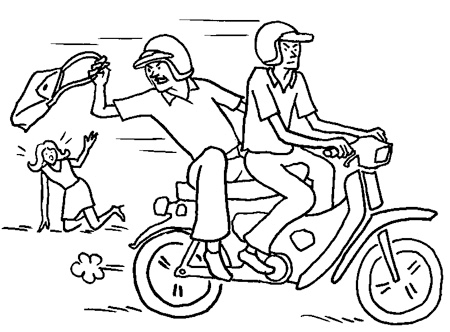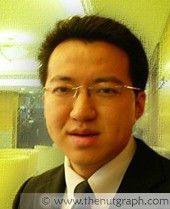MALAYSIANS have been speaking up about crime recently and recounting experiences of violent crime such as robberies, kidnapping and attempted rape. The Nut Graph speaks to political scientist Wong Chin Huat on what it will take for Malaysians to feel safe again in their own homes and on the streets, and whether crime will be a factor in the next general election. Wong himself was recently attacked in Section 18, Petaling Jaya, while on a morning walk.
Anecdotal evidence suggests that many Malaysians, especially in cities, no longer feel safe on the streets and even in their own homes. Is this just a perception issue? How does this relate to the government’s claim that the crime rate has actually reduced in the last two years?

The proof of the pudding is in the eating. If you get mugged in your neighbourhood when having your morning walk, and you know you are not just one unlucky guy in a million, then you don’t feel safe and may even quit exercising. In this sense, perception is the emotional reality. No spin doctoring or perception management or media control can change this because victims will recount their ordeals on Facebook and Twitter — even when they don’t tell the police in whom they may have lost confidence.
Despite the many government initiatives over the years, the same issues concerning street crime such as snatch thefts and robberies persist. Are there any root causes of crime that are not being addressed? Is it just about better policing?
Why do people decide to “work” or moonlight as snatch thieves and robbers instead of earning a noble income? The answer lies partly in the availability of better jobs for them in the economy. That is why a high unemployment rate, a high inflation rate and a widening wealth gap tend to lead to a higher crime rate. No policing can help on this. Some people believe in cultural or moral control as a means to suppress crimes such as by suppressing the masses’ materialist desires or legitimising inequality. But I think the human desire to live a good life can never be permanently suppressed.
Crime is a symptom that our society is ill socio-economically. And it can’t be solved by a handout of RM500 or so. People need hope and faith that hard work can get them a better life. It does not help when corruption and cronyism make inequality even less legitimate or tolerable.
Increased crime is also fuelled by the prospect of success. People know they can get away with bag snatching or mugging because the locals don’t help and the police only turn up after the home has been robbed. So there’s more incentive to snatch or mug rather than work hard for a low hourly pay. This is where policing matters.
What improvements need to be made in policing?
Instead of looking at crime rates, which may depend on reporting, we should look at resources spent on policing. Do we have enough police on the streets when we are not demonstrating? If we don’t, then is it surprising that we are experiencing soaring crime? If we do, then we need to investigate why they have failed in crime management.

Figures obtained by Member of Parliament Liew Chin Tong through parliamentary questions show that in 2010 there was one police officer amongst 270 people. This is quite an impressive ratio by international standards. However, only nine percent were in the Crime Investigation Department (CID) and four percent in the Narcotics and Special Task Force. The special branch consists of five percent of the force, while the General Operations Force, originally formed to fight the communists in the jungle, consists of 14%. More than half the force is in management and logistics. The police say they all fight crime, not just the CID. But why don’t they simply place more, say half of the police force, in the CID to fight crime? Wouldn’t that help to change our perception and make us feel safer?
We need reform in the deployment of police as well as a change in their political goal of crime management. They now talk about reducing crimes in “hotspots”. That does not guarantee us safety. They should instead announce the white, grey and black areas in crime, like they did during the communist insurgency. We need to know the location of white areas where we can expect safety while jogging or shopping.
Will the crime rate be a factor in the next general election? Will a change of government, whether at state or federal level, be able to make any difference to the level of crime in Malaysia?

I believe, yes, crime would be a key issue in the next elections. Will regime change make this country safer? Yes and no. What matters is not who runs the governments, but how the governments are run.
If we really want effective local needs policing, we must be able to flexibly increase the resources and optimise the deployment of the police force based on local conditions. Heads must roll when tax payers are let down.
Can we sack the home minister or the inspector-general of police now? We can’t. We need devolution in police power so a that big part of the police force comes under the control of chief ministers or even elected mayors, who then have the power to sack the CPO or OCPD. We can then demand that the chief minister or mayor improve policing or threaten to sack them, which is much easier than sacking the prime minister or home minister.
This is however unlikely under the Barisan Nasional government. The Home Ministry even rejected MBPJ and MPSJ’s requests to employ their own auxiliary police. Why wouldn’t they allow others to employ more people to help them? Are they afraid of competition?
Will the Pakatan Rakyat promise decentralisation of police? Voters must ask this question.
Residents have taken to hiring their own security personnel and setting up road barriers and guard houses in their neighbourhoods. But not every neighbourhood can afford to hire guards or choose to do so. What does this privatisation of security say about the state of policing in Malaysia? And what will it take for residents to feel safe enough to do away with these barriers?

For thinkers like Thomas Hobbes, the state or government exists primarily to provide for law and order. The public turning to private security is a declaration that the state has failed in this. And as the state is failing, only the rich can feel safe — even then, only at home. The setting up of barriers and hiring of guards crowds out crimes to poorer neighbourhoods and public spaces beyond the coverage of private security.
To reclaim public security, we must reorganise the state and make it into smaller units that voters and tax payers can have better control over. So we must decentralise and reform the police to save our lives, properties and unnecessary fees paid to security companies. ![]()
Wong Chin Huat is a political scientist by training and a journalism lecturer by trade. If readers have questions and issues they would like Wong to respond to, they are welcome to e-mail editor@thenutgraph.com for our consideration.
Read previous Uncommon Sense columns


Andre Das says
Our Mainstream Media (MSM) avoids such issues because of political reasons so I would like to share certain points which I hope can be explored to bring about improvement and change. My attempts to get it published in any of the MSM were futile.
1) I question the effectiveness of having static stations for the police. My daughter was subjected to a bag snatch in Subang Jaya about 150 metres from a static station. It is more logical to have random patrols with its unpredictable form to help in crime deterrence compared to the static stations. Police in other countries have even proactively set up traps to catch these culprits who work with predictable operandi.
2) If you follow the “Broken Windows” theory, then any wrongdoings that occur should be dealt with promptly by the police including small motorcycle offenses such as [not wearing] helmets or running red lights. The wanton double parking in front of these static stations show contempt of the law and contributes to the worsening of the crime situation.Standard reply of these police is that they do not cover traffic offenses. All witnessed offenses of the law have to be managed by the police immediately regardless of which division they come from. Canny Ong may have been alive today if the police stopping her car had been more responsible!
3) Police training has to be done more professionally to instill responsibility and bravery. I have witnessed a situation where two police having tea at a mamak stall were approached by a foreigner about an armed robbery occurring behind one of the lanes and they brushed him off with the words, “What do you want us to do? If we are injured, who will take care of us?”
4) Lastly the excuse of having inadequate numbers should not be tenable. The operating workload should be studied properly including time diary accountability then only we will know the truth. Its all a matter of efficiency as given the choice, government servants have no incentives to work harder and excuses are easy.